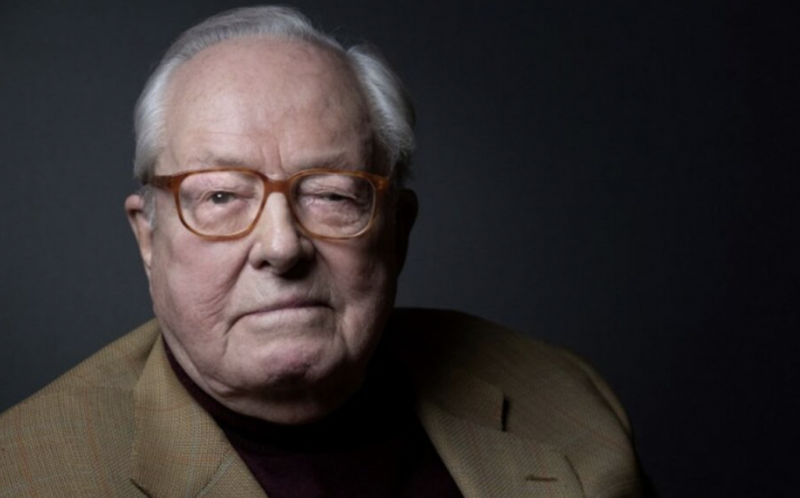The passing of Jean-Marie Le Pen, founder of the National Rally (RN), on January 7 has sparked a polarizing wave of reactions across France.
While many on the Right hailed his legacy as a “courageous” defender of French nationalism, the Left took a different path, mocking the controversial politician on social media.
RN leader Jordan Bardella led the tributes, praising Le Pen’s lifelong service to France. “Enlisted in the French army in Indochina and Algeria, tribune of the people in the National Assembly and the European Parliament, he always served France, defended its identity and its sovereignty,” Bardella wrote on X. He also expressed sympathy for Le Pen’s family, particularly his daughter Marine, urging others to respect their mourning.
Eric Zemmour, leader of the Reconquête party and often a rival of the RN, also set aside political differences to acknowledge Le Pen’s impact. “Beyond the controversies, beyond the scandals, what we will remember about him in the coming decades is that he was among the first to alert France to the existential threats that awaited it,” Zemmour remarked, calling Le Pen a man of vision and courage.
The Identité Libertés party lauded Le Pen’s exceptional determination and foresight, posting, “France loses a very great man. Farewell President.” Economist Jean Messiha echoed this sentiment, calling Le Pen “one of the most lucid personalities of the Fifth Republic” but lamenting his history of anti-Semitic remarks, which he said set back the nationalist movement by decades.
In stark contrast, the French Left used Le Pen’s death to reiterate their opposition to his politics. Leftist social media erupted with memes, celebratory posts, and blunt criticisms. One user wrote, “The year 2025 is not starting too badly with this good news,” listing a litany of accusations against Le Pen, including racism, colonialism, and homophobia.
Jean-Luc Mélenchon struck a more restrained tone, balancing respect for Le Pen’s death with condemnation of his legacy. “Respect for the dignity of the dead and the grief of their loved ones does not erase the right to judge their actions. Those of Jean-Marie Le Pen remain unbearable,” Mélenchon stated. “The fight against the man is over. The fight against the hatred, racism, Islamophobia, and anti-Semitism that he spread continues.”
Similarly, MP Louis Boyard refused to pay tribute, declaring, “All his life he spat on exiles, women, Muslims, Jews, LGBT people. Our thoughts must go to the people he hated. Let’s continue the fight so that his ideology follows him to his grave.”
Even in Belgium, Le Pen’s passing reignited debates about the far-right’s influence. Paul Magnette, leader of Wallonia, used the occasion to attack right-wing media platforms. “Jean-Marie Le Pen is dead. Alas, his ideas are more alive than ever, and X, like CNews, have become their main channels of dissemination,” Magnette said, vowing to continue opposing far-right ideologies.
Jean-Marie Le Pen’s death has drawn a clear line in the sand between France’s political factions. While the Right honors his dedication to national identity and sovereignty, the Left remains resolute in rejecting his views and fighting the ideology he represented. The polarizing responses underscore the lasting impact of his controversial career.




